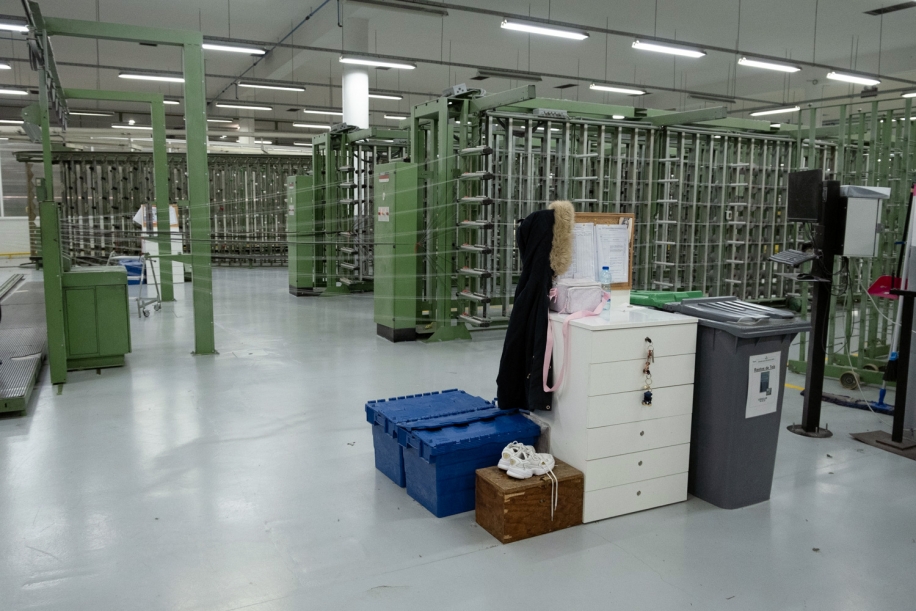
The Supply Chain is Human
Photographer: Lena Hunter
Exhibit Title: The Supply Chain is Human
Location: Portugal
The Supply Chain is Human documents textiles production in Northern Portugal - a mountainous region whose rich heritage of weaving and embroidery, coupled with its high density of modern factories, has made it a European epicentre of luxury garment-making.
The series casts a matter-of-fact light on the daily experience of hundreds of factory-floor employees, seamstresses and clothing designers at four of the region's most technologically advanced facilities, reminding that every supply chain, no matter how invisible or deeply automated, is human.
Lena Hunter (b. 1992) is Danish-British journalist and photographer based in Copenhagen, whose work documents how business, technology and geopolitical forces impact communities and the environment.
Her investigations have examined what the green agricultural transition means for farmers in the EU, how a small bohemian community is fighting gang-crime in Copenhagen, why Danish asylum responses fail Syrian and Afghan refugees, and Denmark's unethical expansion of North Sea oil drilling.
Made during a research trip to Porto, Portugal in November 2024, The Supply Chain is Human is a response to the heightened public calls from executives and officials to secure, optimise and automate supply chains in major transnational industries, which gloss over the ramifications for production workers.
The factories depicted in the series - Valerius360, Riopele, Polopiqué and Calvelex - are amongst the country's biggest and most technologically advanced production facilities. The spaces are fluorescently lit, spotlessly clean, meticulously organised and – in places – swelteringly hot and deafeningly loud. Work is steady and repetitive, with men overrepresented on the floor of materials factories, and women dominating in pattern design and garment-making.
Each month, the workers here manufacture over 50,000 garments, 560 tonnes of yarn and 400 of paper for European clients and consumers. The fibres they use are derived in part from some 600 tonnes of recycled fabric – equal to 0.001% of the total amount of textiles waste in the EU27.
lenahntr@gmail.com
Make Comment/View Comments